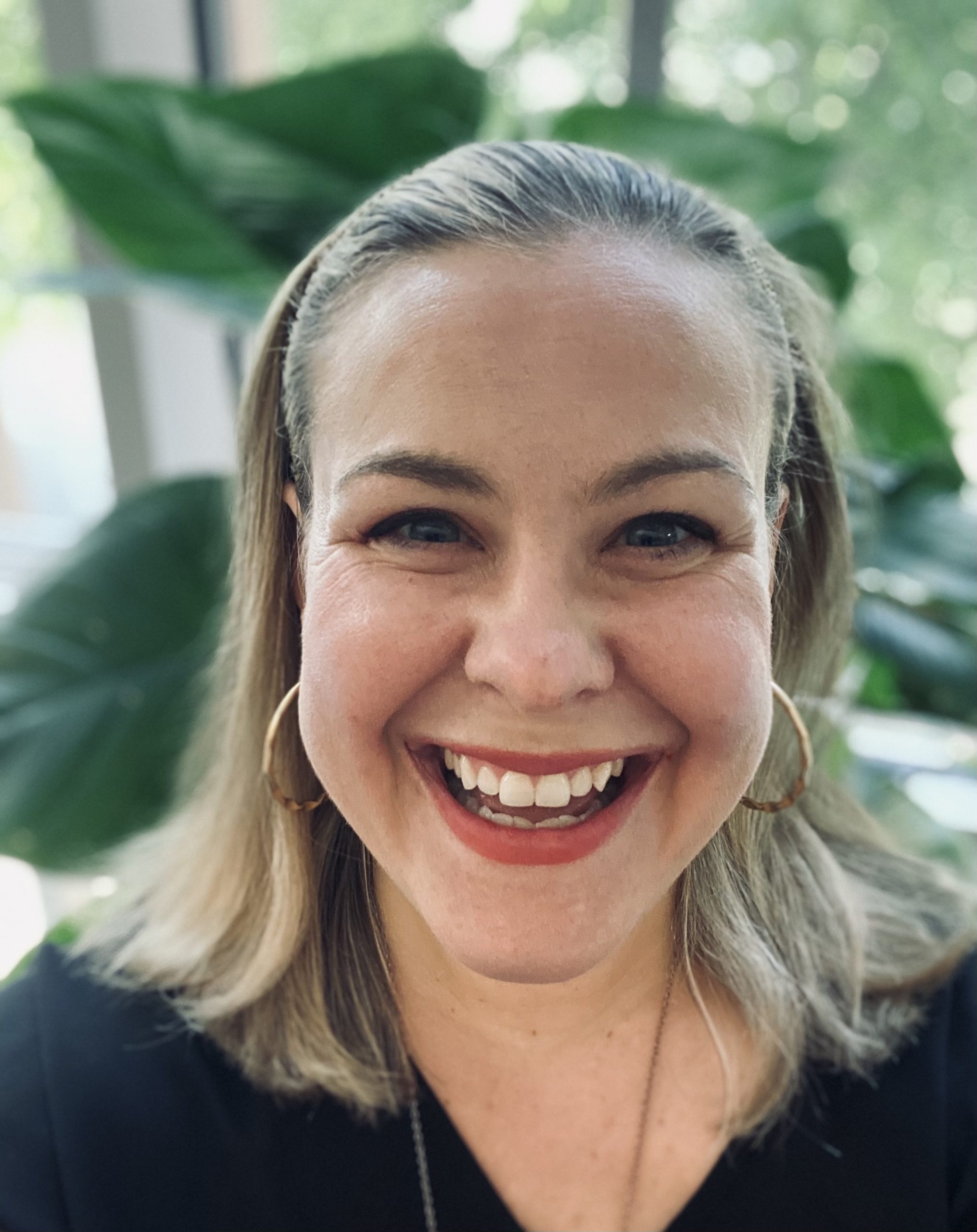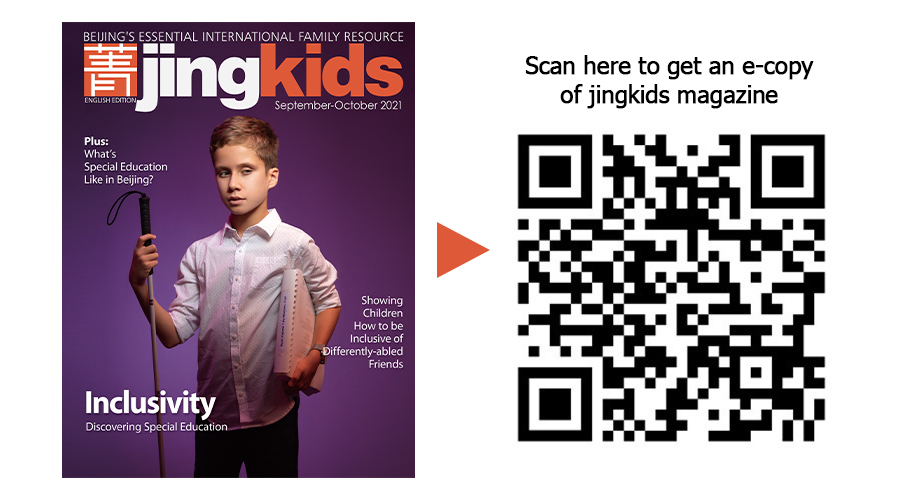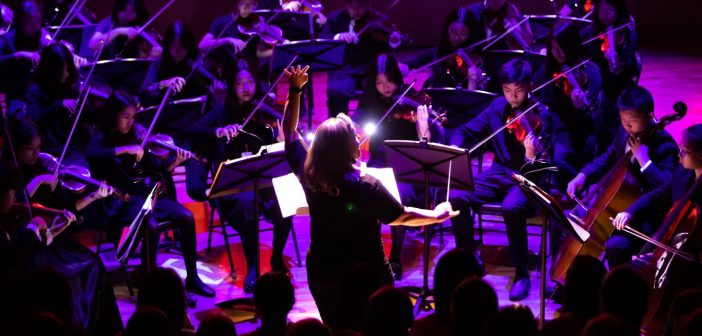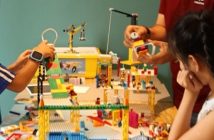If you looked up international educator in the dictionary, Stephanie Gravelle’s photo and résumé would be the definition. This actress-turned-educator has degrees from Carnegie Mellon and Columbia University, not to mention a burning passion for the arts, and deep love for her students. She’s taught all over the world and has an authentically global perspective coupled with optimism for the future that is truly inspiring.
Aside from being an educator, however, Gravelle is also a mom and musician who found her way to the classroom through a somewhat unconventional path. During a lull in her acting career, while living in New York, she went back to her hometown in Wisconsin to help out her little sister, whose senior musical needed a director. “I moved home for a few months and tried my hand at directing,” explains Gravelle. “I loved it and found I was pretty good at it.” When she returned to New York, she took a job at the prestigious New York City Opera working with school-aged kids leading tours and activities.
 “Again, I loved it and was pretty good at it,” says Gravelle, adding, “As I approached the age of 30… I realized I was happiest and felt most successful in those moments when I was making music with kids.” As a result, she applied to Columbia University for an education degree. However, it was towards the end of her program that one of those magical chance meetings happened.
“Again, I loved it and was pretty good at it,” says Gravelle, adding, “As I approached the age of 30… I realized I was happiest and felt most successful in those moments when I was making music with kids.” As a result, she applied to Columbia University for an education degree. However, it was towards the end of her program that one of those magical chance meetings happened.
A regular at the restaurant where she was waiting tables happened to bring in a friend who was a career international teacher. “I had no idea international education even existed! I went home that night, looked up International School Services, and applied to a school in Dalian, China. I met my husband in Dalian, and we’ve been international teachers ever since.”
She hasn’t looked back. “I love the energy in the (class)room when things are really working. I love being a person in a child’s day that is excited to see them and can help them find their voice – singing or otherwise.”
But there has been a lot of debate about how best to prepare students for the “real world” and many schools are cutting funding for the arts. When asked why the arts are important in education, Gravelle mounts a passionate defense.
 “Those that focus on test scores and college acceptance letters are thinking small. Test scores measure how well you take a test. They do not measure social skills, problem-solving skills, or anything that is becoming increasingly important. The arts teach collaboration and critical thinking. The arts teach you humility and empathy! Most of the elite US colleges have moved away from looking at test scores.”
“Those that focus on test scores and college acceptance letters are thinking small. Test scores measure how well you take a test. They do not measure social skills, problem-solving skills, or anything that is becoming increasingly important. The arts teach collaboration and critical thinking. The arts teach you humility and empathy! Most of the elite US colleges have moved away from looking at test scores.”
And she’s right. Most schools are putting less emphasis on – or have outright stopped considering – SAT/ACTs as part of undergraduate acceptance, and her own alma mater, Columbia University did not require the GRE.
“I see so many students without a passion because they have been forced into extra classes and test prep…College acceptance is important, but your adult life is so much longer than university.”
That’s not her only frustration as a teacher. Like so many educators, Gravelle faces the “those that can’t do, teach” mentality. “I am highly educated and take a lot of pride in my work…However, there’s a lot of side-eye when I try to convince others that this isn’t a fallback career or that I don’t want to be something more ‘successful.’”
But knowing she makes a difference keeps Gravelle motivated. Teachers are often the rock in the proverbial pond. They are the inciting incident but may never understand how far their ripples extend. “At the end of one of the musicals I directed, one of the students stood up and said, ‘Ms. G., not only do you teach us to use our singing voice, you give us the confidence to use our voice for good.’”
The kids aren’t the only ones who have been changed for good. In fact, Gravelle shared a story that brought me to tears.
 “I was teaching in the Gulf region during the 2016 US election. After the election results were posted, the girls’ choir started trickling into class and many of them were in tears… The Muslim girls especially wanted to know, ‘how could people vote for someone who specifically hated them?’ One of the senior girls, from Texas, asked if everyone could just sit on the floor together and hold hands. I went with it.
“I was teaching in the Gulf region during the 2016 US election. After the election results were posted, the girls’ choir started trickling into class and many of them were in tears… The Muslim girls especially wanted to know, ‘how could people vote for someone who specifically hated them?’ One of the senior girls, from Texas, asked if everyone could just sit on the floor together and hold hands. I went with it.
She held the hands of the girls in the room and gave a speech about love and sisterhood. She asked all the girls to hope and to stand by each other and to not give up in the face of darkness. Each girl had a turn to talk about their fears that day, to cry, and to get a hug. It was a beautiful circle that I feel honored to have experienced.”
One of my favorite things about this dynamic woman was that she sees herself as not only a teacher but a student of life as well. “I want to learn about how all kinds of people make music and integrate what I can into my practice. I want to always be learning something new.” I pressed her about what she was learning now and was delighted to find out that she and several other International School of Beijing teachers are learning Chinese folk songs, explaining that very little is known in the West about traditional Chinese music and even less is known about Eastern vocal techniques. “It’s been humbling and fun to try to figure out what our teacher wants us to do and how to mix our own training with the technique of China. We will be presenting our work at an international online conference in October.”
It’s just one more way this Beijing teacher is bridging the gap and teaching the world to sing!

This article appeared in the jingkids 2021 September-October issue




